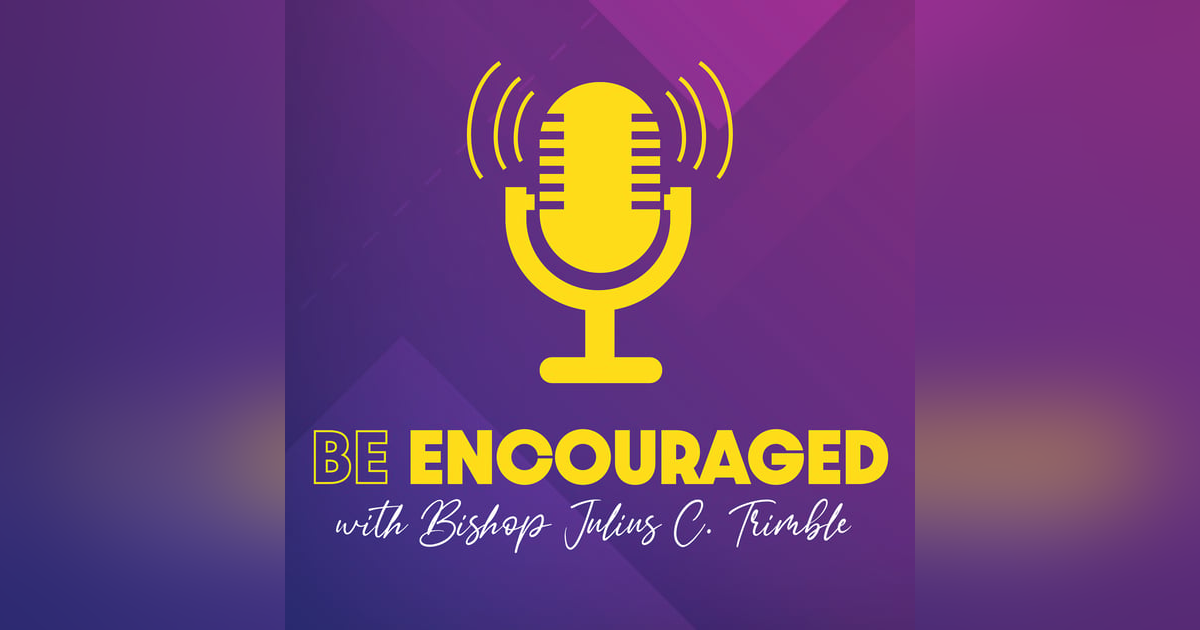University of Evansville President Chris Pietruszkiewicz and the Changing Perception of College Education-Part 2

Bishop Julius C. Trimble is the Resident Bishop of the Indiana Area of the United Methodist Church.
Bishop Trimble has the personal mission to encourage all people with the love of Jesus Christ to rise to their highest potential. It is his commitment to his personal mission that led Bishop Trimble to create the “To Be Encouraged” Podcast along with co-host Rev.Dr. Brad MIller.
Bishop Trimble says, “I am compelled by Jesus to share with you an encouraging word or two about Jesus, theology, the Bible, the pandemic, the environment, racism, voting rights, human sexuality, and the state of the United Methodist Church.”
To Be Encouraged with Bishop Julius C. Trimble is to be published weekly and is available at www.tobeencouraged.com and all the podcast directories.
https://www.inumc.org/bishop/office-of-the-bishop/
Show Notes: Episode: 074.
Title: University of Evansville President Chris Pietruszkiewicz and the Changing Perception of College Education-Part 2
Hosts: Bishop Julius C. Trimble and Rev. Dr. Brad Miller
Guest:, President Chris Pietruszkiewicz, University of Evansville
- In this episode (074) of To Be Encouraged, Rev. Dr. Brad Miller continues the discussion with Bishop Julius C. Trimble and President Chris Pietruszkiewicz from the University of Evansville (U of E) which they began in Part 1 of this episode on Episode 073. They address the impact of the ongoing schism within the United Methodist Church on the university, emphasizing their commitment to welcoming all students.
- The value of a college education in today's changing world is also discussed. President Pietruszkiewicz highlights the adaptability of universities, especially in light of the pandemic, and emphasizes the importance of a holistic education that develops both the mind and the character of students. He challenges the perception that college is too expensive, pointing out that the average debt load for U of E graduates is manageable, and a college education results in higher lifetime earnings.
- The recognition of U of E by Money Magazine and The New York Times is mentioned. President Pietruszkiewicz explains that these rankings are based on objective criteria such as job placements, average starting salaries, and economic diversity. He shares that U of E stands out for its accessibility to students from diverse socioeconomic backgrounds, with 30% of students receiving Pell Grants and 20% being first-generation college students.
Key Takeaways:
1. University's Response to the Church Schism: The University of Evansville promptly reassured its community that it embraces all individuals, regardless of the ongoing schism within the United Methodist Church.
2. The Value of College Education: A college education provides holistic growth and development, equipping students with skills and knowledge that extend beyond their first job. The overall value of a college degree is reflected in higher lifetime earnings and a well-rounded perspective.
3. U of E's Recognition and Accessibility: The University of Evansville has gained recognition for its positive outcomes, inclusivity, and economic diversity. It strives to make higher education accessible to students from various socioeconomic backgrounds.
This is Part 2 of a two part episode. Part 1 of this episode with U of E President Chris Pietruszkiewicz can be found at tobeencouraged.com/episose/073
To contact The University of Evansville go to: evansville.edu
Timestamped Overview
00:01:03 Human sexuality, church circles, college education.
00:04:19 College debt, income, political climate, value
00:09:00 10 more needed on campus to meet student needs. Expenses must align with revenues, provide services expected by students, and create job opportunities after graduation.
00:10:14 Delegating power, trusting team, fundraising campaign mentioned.
00:15:53 Liberal arts foundation for impact and community.
00:19:05 Invite President P to speak at U of E Alumni gathering.
00:20:19 Encouraging leadership, successful university despite challenges.
00:23:43 Thanks for listening to the To Be Encouraged podcast with Bishop Julius C. Trimble, featuring guest Christopher M.Pietruszkiewicz. With Reverend Dr. Brad Miller.


